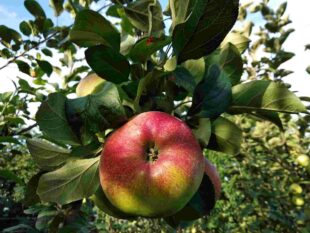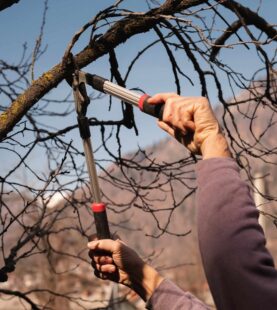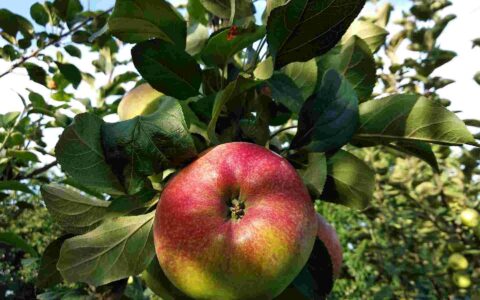How to Break Down Stress: Learning to Pull a Lighter Load (Part 2)
Kelly Walters
This is Part 2 of a two-part article series. Read Part 1 here.
Come to me, all who are weary and burdened, and I will give you rest. Take my yoke upon you and learn from me, for I am gentle and humble in heart, and you will find rest for your souls. For my yoke is easy and my burden light. – Matthew 11:28-30, NIV
In this short invitation, Jesus calls out our need as well as our deep longing. Who cannot identify with being weary and burdened?
At times life can get overwhelming and even beyond our capacity to handle. We may get to the point where we feel we can’t take it anymore.
We may be desperate for a break from the madness. But what we really long for is more than a couple days off. Our deep desire is to find “rest for our souls.”
Yet, Jesus doesn’t give us the escape clause that we may hope for. Rather, He tells us that the solution to our stressed-out life is to put on His “yoke.” The image is of a wooden collar placed on an animal so that it can do the work of pulling a plow or cart. I don’t know about you, but that does not sound like much of a vacation! Either Jesus doesn’t know what He is talking about or He is revealing that there is a way to pull our load that doesn’t feel so hard.
My favorite phrase in this passage is, “Learn from me.” Could it be that I can accomplish the same tasks of work, parenting, household chores, but do it in a way that feels “easy and light?” Could it be that I don’t need to work harder, but smarter?
In part one of this article, “How to Break Down Stress Before it Breaks You: Stress Management Tips from a Christian Counselor,” I introduced a clever stress management model espoused by psychologist, John Townsend, the author of the popular Boundaries book series.
The simple, yet profound, idea is to think of our stress profile as a fraction. On the top of the line put all of your various stressors under the general label of responsibilities. Underneath the line think of all of the assets available to meet the needs of the tasks above. These are your resources.
To be mentally healthy we would ideally have a stress-fraction that would simplify to something close to 1. In other words, we would have enough resources to meet all of the demands on us. When we feel overloaded, we are either taking on too many responsibilities or we are not finding the resources to get fully recharged on a regular basis.
In part one, we went into detail outlining how we can increase the resources. Here we want to think through how can we reduce the level of stress that our responsibilities give us.
What is stress?
Anything that absorbs your time, energy and sense of peace can be considered stressful. Stress is something that varies greatly for each individual. The key factor is how it affects your emotional and mental state.
In some ways, stress is in the “eye of the beholder.” One man’s work may be another man’s play. One of my favorite activities to relieve anxiety over the years has been a five-mile run. For many people though, running is the definition of stress! I have also read that the greatest fear for most Americans is public speaking. Ironically, that is something I really enjoy. Public dancing though – now that is pure torture!
Reduce your stress by pruning your branches
My father became an apple farmer in his fifties. One of the hardest things that he had to learn was how to prune. Knowing that each branch could hold hundreds of apples, cutting away good wood seemed like throwing money down the drain.
However, the only way to produce large fruit was to reduce the number of branches the tree needed to support. In addition, branches that have too many apples must be thinned or they will break under the strain. The same thing of course can happen to us unless we are careful.
In many ways, less is more. It is far better to pour our energy into doing a few things well than many things poorly. One of the things that we should do on a regular basis is to take inventory of our life and do some pruning!
 What can you prune?
What can you prune?
It is normal to have a full schedule. In fact, there is a good chance that you may have too many commitments, not to mention numerous hobbies, workout plans, social events and friendships you feel guilty about not maintaining. So, what do you cut out?
Make a list
Start by making a list of all of your responsibilities and time investments. Then go through your list and identify the things that are most important to you, like family, faith and work responsibilities. Identify which items on this list are non-negotiable, and make sure to keep these as your highest priority.
Years ago, I made the mistake of becoming over-committed with my job and volunteer ministry. Eventually, my wife dropped the bomb that she was unhappy with our marriage. I was devastated! At that point, I made a firm decision to do whatever it took to build our relationship. Nothing was going to be more important than my wife and my children.
Next, rate the relative importance
Look for things that take your time or attention but are not that important to you. Are there some things that you can give up or give minimal time to?
I used to be one of the better road racers in our area. It was a hobby that I was also good at. But after our first baby was born, it didn’t seem fair to my wife to let her carry all of the load while I went for another ten-mile session. I continued to stay healthy, but chose to cut it back from a daily obsession to a few short runs a week.
Prioritize what you invest in
Look at the relationships in which you are investing. There are many people that we can stay connected with a text or call here and there. However, there are others, like our children, mentors, or those we are mentoring, to whom we may even want to increase the time we give.
Though these intimate relationships may soak up a lot of our time, they will also pay us back many times over with the love and joy that they give back to us. Jesus taught thousands of people as He went from town to town, but the bulk of His time was devoted to the twelve disciples that His Father had given him.
 Cut out the dead wood
Cut out the dead wood
The easiest thing for the orchardist to prune out are the branches that are no longer producing. It may be that civic organization that was once a source of both purpose and relationships. Now you are involved because you are somebody they can count on. But is that branch living and vibrant? If not, pour your energies elsewhere.
I love the principle of looking for what God is doing and then joining Him in it. It may seem hard to try to discern what God is doing. However, I think it may not be so mysterious. Where is there love? Where is there truth? Where are people changing and experiencing new life? There is a good chance that God is behind it. Follow him into that work and you may be renewed as well!
Put on the “yoke that is easy and light”
 Of all of the things that I am currently learning about how to manage my stress, this is the most revolutionary. This last concept gives me hope for a new way of doing life!
Of all of the things that I am currently learning about how to manage my stress, this is the most revolutionary. This last concept gives me hope for a new way of doing life!
I have the obvious stress of my job as a therapist and my commitments as a husband, father and grandfather. I am involved in my church and some people have looked to me as a mentor. None of those things are responsibilities that I want to give up. They give me some joy. They give me purpose. They are practices of my “calling”.
And yet, they can also crush me! They crush me when I am not just responsible, but over-responsible! When I try to rescue, become their savior, or fix every problem. I get in trouble whenever my love shifts from serving and blessing to “demanding” that they change. I start to drown whenever their problems become “my” problems. Somehow, I need to take up the yoke that Jesus offers – the extra light one.
What is this easy yoke?
Jesus does not elaborate on what this “easy yoke” is. However, the metaphor itself is helpful. In the farming of Jesus’ day, plowing or hauling was often done with more than one animal. An ox could be made to pull the load all by himself, or he could be strapped under a different yoke with a partner. I have read that two oxen working together could pull three times as much as a single ox.
In addition, a younger animal might be tied in with a stronger more experienced one for training. In that case the weaker animal would be able to accomplish a lot, but not really be pulling much weight. It’s yoke would feel “easy and light.” Jesus said, “If you abide in me, you will bear much fruit.” Perhaps this is what it means to put on “his yoke.”
The way that I have learned to think about it is that “taking His yoke” can mean that I choose to be teamed up with Jesus as I pull my load. I am the younger, weaker ox in training. I am accomplishing the work that He gives me and doing it in His way. I am following His lead and not trying to do any more than He asks.
I am also depending more on His ability to accomplish the work then my own efforts. Yes, I still do my part, but the heavy weight – most of the responsibility – is on His shoulders. If this is true, then more effort should be invested in “abiding” with Him than in making sure my goals get accomplished. Part of this is giving up on control and giving the outcomes to God. I must remember that I can’t fix anyone. Encourage, support and serve? That I can do!
A few years back I was helping a client navigate his stressful life in leading a non-profit working in a poor neighborhood. We were talking about recognizing o8ur limitations, and discussing the issue of being overly-responsible when he framed it with a simple rule. He said we have to be careful to divide our work into three categories:
1. My responsibility.
2. Another’s responsibility.
3. God’s responsibility.
 The apostle Paul taught something similar about the work of the Kingdom when he wrote, “It’s not the one who plants or the one who waters who is at the center of this process, but God who makes all things grow.” (1 Corinthians 3:7)
The apostle Paul taught something similar about the work of the Kingdom when he wrote, “It’s not the one who plants or the one who waters who is at the center of this process, but God who makes all things grow.” (1 Corinthians 3:7)
So, sometimes my job may be to plant some seeds. Other times I am to water. I may even get a chance once in a while to help bring in the harvest. Those are relatively simple tasks that I can do.
The mysterious and overwhelming job of making things grow, change or work is really God’s job. He is doing the heavy lifting. I need to depend on him to do the supernatural and unexpected. He can even make “beauty from ashes”. Remembering and practicing to work under “his yoke” sets me free!
I can find joy in hardship. I can have hope, even though all I did is throw a few seeds on the ground. Maybe, when spring comes, the snow melts and the sun shines again, new life will spring up. Maybe by the fall there will be a wonderful harvest, and all I did was do my part – my simple, easy part.
For more help navigating through a difficult season of stress or other life issues, contact me or any of the other counselors at Spokane Christian Counseling. We also have sister offices elsewhere. We can partner with you in your quest to grow and thrive.
“Ox Cart”, Courtesy of Otto Gonzalez, Unsplash.com, CC0 License; “Backpacks”, Courtesy of S&B Vonlanthen, Unsplash.com, CC0 License; “Apple”, Courtesy of Anna Evans, Unsplash.com, CC0 License; “Pruning”, Courtesy of Ales Krivec, Unsplash.com, Unsplash+ License






